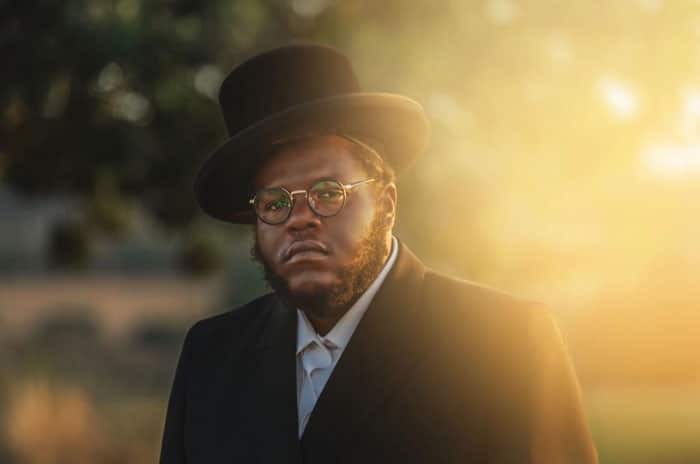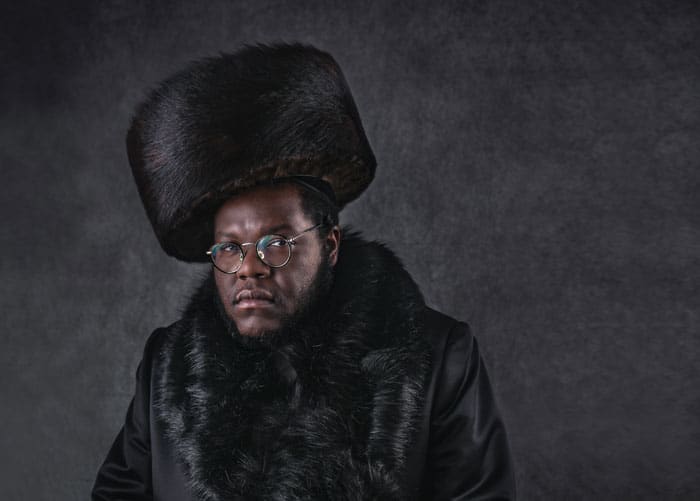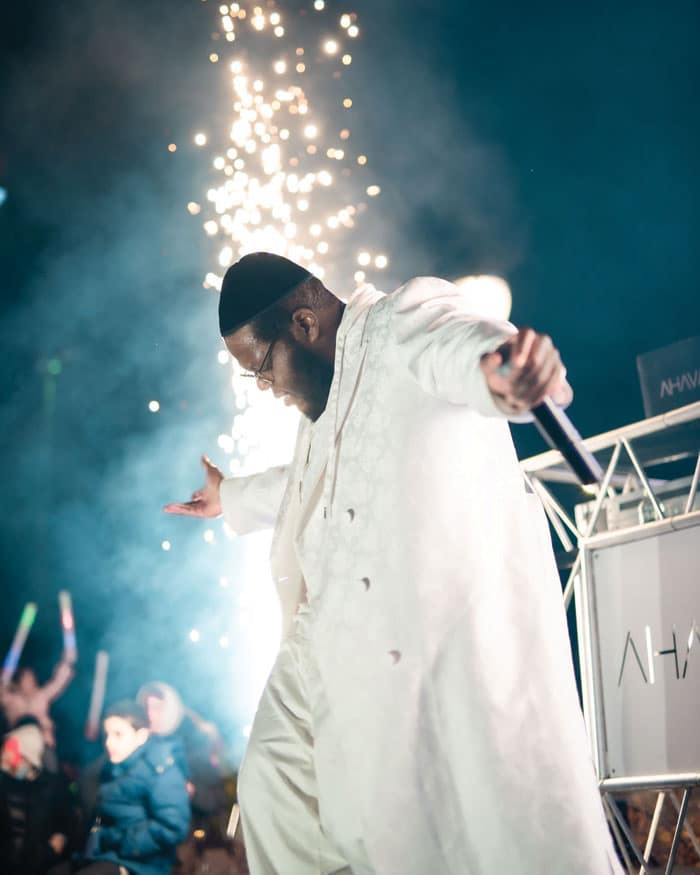
Where Nissim Black comes from, life can seem pretty hopeless.
Growing up in a rough neighborhood in Seattle, he was traumatized at a very young age. His parents were drug dealers and would sell drugs out of their house. When he was eight years old, law enforcement found out and the FBI raided his home. His grandfather, who lived with his family, went to prison.
“I didn’t grow up on the streets. The streets grew up in my house.”
“I didn’t grow up on the streets,” he said. “The streets grew up in my house.”
Black was on the wrong track. By the time he was 12, he was smoking pot regularly and nobody noticed — or cared. He ended up in the wrong crowd and was expelled from school.
Things weren’t looking like they’d get better. But then, Black got a lifeline. When he was 13 years old, a friend invited him to a hip hop program that took place after school. A Christian organization owned it and, for once, Black got to feel like a kid.
“To go from dealing with that kind of dysfunction to this safe haven where you can just be a kid saved my life,” he said. “It was a powerful experience, and it kept me out of trouble for a long time.”

Black became interested in Christianity, which he didn’t have exposure to as a child. The first religion he learned about was Islam, and he would pray five times a day with his grandfather before he was sent back to prison.
“I was always spiritual, but when I was 13, I was very much in this place of longing and seeking something more spiritual,” Black said.
Christianity gave Black hope. There was a sense of camaraderie in his community, and knowing God was looking out for him was deeply comforting.
When he entered high school with his new outlook on life, his plan was to be quiet and unassuming — which didn’t come naturally to him. Just four months into freshman year, he won a rap battle and instantly became popular. Shortly after, he was signed to a record label and he went back to his old way of life.
“At that time, 50 Cent was big, so they wanted gangster music,” he said. “It led me down a dark path of revisiting the old me. I got into a rap beef that almost cost me my life.”
Black decided that he didn’t want to live that way anymore. It was too risky, and it wasn’t worth it.
“After we squashed the beef, I realized I wanted to go a different way completely and give myself over to God and to a greater me,” he said.
Black decided to become more involved with Christianity — something he said helped him feel God’s love and grace — and become a junior missionary, along with other teens in his high school.
“I became a Bible-thumping Christian,” he said. “I remembered every verse and enjoyed being at church more than I enjoyed being at home.”
The more Black studied the Bible, the more he realized that so much of it has roots in Judaism. He looked into it and came across a YouTube video made by the Messianic Jewish community. After watching it, he felt like it made sense. Eventually, he left Christianity and joined a Messianic congregation in Seattle.
“It was a blessing that I went there,” he said. “A great deal of Messianic temples are churches with a Jewish flavor. People were davening out of Artscroll siddurim. They had on kippahs and tallit.”
To ingratiate himself into this new world, Black, the always enthusiastic learner, started studying Judaism. Once he clicked on some articles on Chabad.org, he said, “It gave me such a craving for Orthodox Judaism. It pushed me more and more in that direction.”
To ingratiate himself into this new world, Black, the always enthusiastic learner, started studying Judaism. Once he clicked on some articles on Chabad.org, he said, “It gave me such a craving for Orthodox Judaism. It pushed me more and more in that direction.”
 After two years in the Messianic congregation, Black left to learn about Orthodox Judaism. He found a local Sephardic rabbi, Rabbi Simon Benzaquen, and began learning authentic Torah Judaism with the rabbi. Black’s wife Adina, his high school sweetheart he’d been with since he was 16 years old, started studying as well.
After two years in the Messianic congregation, Black left to learn about Orthodox Judaism. He found a local Sephardic rabbi, Rabbi Simon Benzaquen, and began learning authentic Torah Judaism with the rabbi. Black’s wife Adina, his high school sweetheart he’d been with since he was 16 years old, started studying as well.
“The first book I got in halacha was a Sephardi book,” Black said. “It seemed culturally close to us and more comfortable. We had a beautiful experience in the Sephardic synagogue. The rabbi took us in, and the community loved us. We really grew there.”
Black and his wife converted to Judaism in 2013, and, along with their children, they moved to Israel in 2016. Today, the family of nine lives in Beit Shemesh and are part of the Hasidic community.
Though Black learned Sephardic teachings, when he discovered Hasidic Judaism, he was hooked.
“Becoming a Jew was very dramatic, with the amount of praying and fasting and personal growth I was going through,” he said. “It wasn’t until I came across Rabbi Nachman of Breslov and Rabbi Shalom Arush that gave me back the fire I originally had. I learned with Shmuel Brody, who had such a love and fire for Hashem. He made me realize I could be the same. There is such a soulfulness and spirituality to Hasidic Judaism.”
In particular, Black connects to Nachman’s teachings because they perfectly describe his relationship with God.
“His teachings are about personal prayer, building a very personal relationship with God and spending a lot of time with Him,” he said. “That was a no brainer for me. That was always what I was looking for.”
Even though Black and his family may look different from most people in the Orthodox community, it hasn’t held them back or been a deterrent. In fact, it’s been quite the opposite — the community has fully embraced them.
“I didn’t know what to do with all the kindness. I thought, ‘Why is everybody being so nice?’ It’s a love that I never knew where I came from. I didn’t expect it.“
“I didn’t know what to do with all the kindness,” Black said. “I thought, ‘Why is everybody being so nice?’ It’s a love that I never knew where I came from. I didn’t expect it. I felt accepted. My whole experience has definitely been one of unbelievable love.”
On a day-to-day basis, Black spends his time studying in a Hasidic kollel (study hall), recording music, touring around the world and releasing songs and videos online. He has over 32,000 monthly listeners on Spotify, and his biggest hit, “Mothaland Bounce,” came out in 2020 and has five million views on YouTube.
In the video, he’s dressed in Hasidic and African garb, acting like he’s Eddie Murphy in “Coming to America.” There are other Black men dressed like Hasidim and dancing to the song.
“Mothaland Bounce” is a mini autobiography of the rapper’s life. In it, he raps:
Black and Jewish I been wit it Sammy Davis cousin
Tried to dodge the industry but now my name is buzzing
They all sayin’ that I’m conscious, I say that it’s nonsense
So I say I’ve been on since on had an on switch
From Seattle, the rainy city, where my mom lives
In Jerusalem the golden city that was conquered
But still we movin’ onward, motherland conquest
Smell me like an armpit, yeah.
Many of the thousands of comments are from people who are also Black and Jewish. One person wrote, “I’m black & Jewish, and I feel this,” and another wrote, “I love this … I am Black and Jewish.”
Black says that in his songs, he writes “my own prayers and experiences and work out all these yearnings to be a better person. A lot of that comes through in my music. The words that go into the heart enter the heart.”
Black’s latest release is “Victory,” an emotional and upbeat song about the story of Hanukkah and the Jewish people’s survival. He sings:
“I fight for you, Jerusalem
You’re the city of the King
And please don’t forget Jerusalem
‘Cause we’re the bearers of your name.”
When Black makes music, what he tries to do is imagine himself as a consumer and how he would feel listening to his songs.
“People tell me my music gives them strength. They used to listen to hip hop that talked about vulgar things. My music isn’t like that. They can play it for their kids.”
“People tell me my music gives them strength,” he said. “They used to listen to hip hop that talked about vulgar things. My music isn’t like that. They can play it for their kids. If I can make music that helps people feel closer to God, that’s all I really want.”
Black is frequently on tour, performing for Jewish communities all around the world. This past December, he headlined the annual Hanukkah gathering and concert at The Grove in Los Angeles, rapping in full Hasidic garb after the Menorah lighting. According to Black, most of his audience is Orthodox.
“I’m blessed that I live in such a world today where they can see everything I do on YouTube, Spotify or Apple Music,” he said. “You actually see that it takes a big dip on Saturday, because my listeners are Orthodox.”
In addition to putting out and performing music, Black is also taking on Hollywood. In April of last year, Deadline announced that HBO Max was developing “Motherland Bounce,” a comedy TV show based on Black’s life.
In addition to putting out and performing music, /Black is also taking on Hollywood. In April of last year, Deadline announced that HBO Max was developing “Motherland Bounce,” a comedy TV show based on Black’s life. Currently, Black is working on it with comedian Moshe Kasher, who grew up in the Satmar Hasidic community.
“I go from excitement to fear all the time,” said Black. “I grew up watching movies and TV, and it’s amazing to be working with [executive producer and director] Salli Richardson-Whitfield. It’s an opportunity to put out some good content. It’s something you and your kids can watch.”
Like his music, Black sees the show as a way to spread positive messages about Orthodox Jews.
“There are a lot of horrible things focused on not only the Jewish community, but also the Hasidic community,” he said. “Every community has its challenges and bad apples, but it seems like there’s this agenda to push it. Those are some people’s experiences, but I haven’t had them.”
“Motherland Bounce” is also a way to fight back against the rise in antisemitism, fueled recently by fellow rapper Kanye West. This particularly hurt Black, who had a personal attachment to West when he was growing up. However, he doesn’t see West as a threat.
“We need to address it with more love and more light,” he said. “Let’s build more goodness and light, and have more positivity. Let’s give PR to people doing great things and shining a good light on the world. We have to fight everything with love.”
Through his music, and his upcoming TV show, Black hopes he can spread the good word about God, who saved him and changed the trajectory of his life.
“I want everybody to see that Hashem loves them,” he said.
“God has gotten bad press in recent decades, and people are slowly leaving the idea of God being in the world. But people should know how much He loves them.”
He continued, “I want to be close to God. It’s what I want more than anything else.”























 More news and opinions than at a Shabbat dinner, right in your inbox.
More news and opinions than at a Shabbat dinner, right in your inbox.